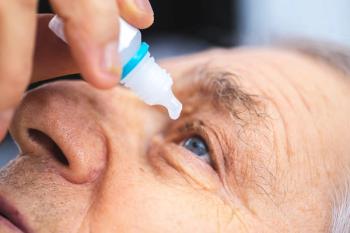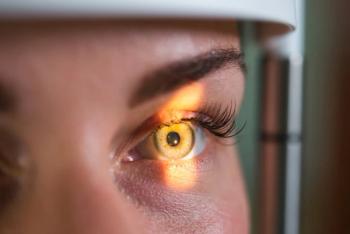
Why I’m thankful for optometric conferences
I recently had the opportunity to do something I’d never done before: attend a conference that had absolutely nothing to do with optometry. Now some of you will ask, “Don’t you go to enough of those things as it is?”
I recently had the opportunity to do something I’d never done before: attend a conference that had absolutely nothing to do with optometry. Now some of you will ask, “Don’t you go to enough of those things as it is?” Well, yes, but this one appealed to my creative side, it was an easy drive, so I decided to make this a belated birthday present to myself.
Boy, was that a mistake.
There is a certain acquired comfort at optometric conferences. Let’s face it, we’ve all been to so many that we know what to expect when we trudge off to whatever exotic locale the meeting organizers have chosen.
We see people we know and hear lectures that interest us by speakers who are knowledgeable, informed and-if we’re lucky-entertaining. Lectures that are science-based and free of commercial content.
Related:
That last statement is included for a reason. The conference I attended had absolutely nothing to do with science and was essentially a series of infomercials. Every presentation was tied to some book or blog the presenter had generated, and every presentation ended with, “Here’s my website, here’s my blog page, and I have book(s) for sale out in the hallway. You need to buy one!”
Which may well be the norm; as I said, it was my first experience with a non-optometric conference. At least no one asked me to walk barefoot over hot coals. Still, the shameless hucksterism really left a sour taste.
I recall with some irony a meeting was taking place in Dallas that very weekend where the future of optometric continuing education was being discussed.
Now, I do not claim to be well-connected politically. I am, though, a willing and enthusiastic consumer of optometric continuing education. Sometimes change can be good. But change for the sake of change rarely ever is.
Related:
I am of the opinion that the current regulatory body overseeing optometric continuing education does an outstanding job on a limited budget navigating the myriad state requirements for CE while keeping the courses as free as possible from commercial content and bias.
That last part is particularly important, especially having seen firsthand what a free-for-all presentation with no guidelines looks like.
Everything I ever needed to know about life I learned from my grandmother. Once, my grandfather brought me a bright shiny new Trailways toy bus that lit up when you ran it across the floor. Obsessed with discovering what made it run, that six-year-old took a screwdriver and a ball-peen hammer to the toy in a feeble attempt to get to its inner workings.
Related:
When my grandmother asked me what I was doing, without a ready answer I said meekly, “I’m fixing it.” She replied with words of wisdom I have never forgotten: “If it ain’t broke, son, don’t fix it.”
I try to apply that lesson to most endeavors. Perhaps the optometric powers-that-be might want to apply it to optometric continuing education.
Newsletter
Want more insights like this? Subscribe to Optometry Times and get clinical pearls and practice tips delivered straight to your inbox.









































